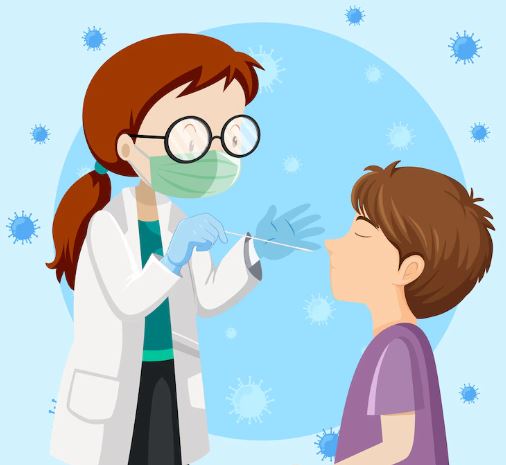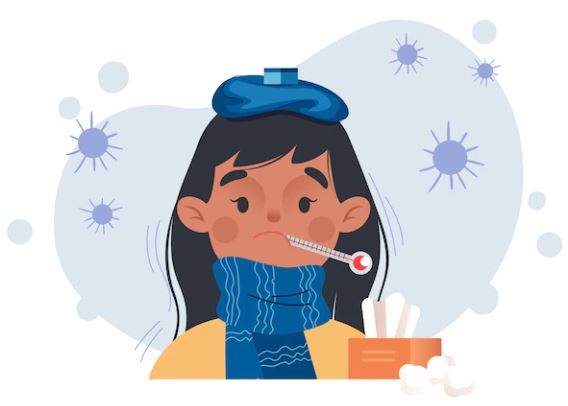What is an autoimmune disease or why does our body turn on us ?
An autoimmune disease occurs when the immune system malfunctions and begins to "attack" healthy cells or organs that are normally supposed to be protected. Multifactorial, autoimmune diseases cannot be cured today, even if symptom management improves.
Autoimmune diseases are a real public health problem at the national and global levels. It is estimated that approximately 5 million people are affected in France and that approximately 5 to 8% of the world's population will be affected. Autoimmune diseases, after cancers and cardiovascular diseases, constitute the third group of diseases in terms of morbidity and mortality.
There is a greater risk for women than for men !
Autoimmune diseases: what mechanisms are used ?
Our body protects itself from external attacks (viruses, bacteria, fungi) and cancers thanks to the immune system, a kind of protective army made up of several types of white blood cells. But sometimes the immune system overloads, it does not tolerate the components of the body (self) and begins to attack and destroy certain organs and tissues. Instead of producing antibodies to defend itself against external pathogens, the body produces antibodies that turn on itself and target the "self". Immunity no longer plays its protective role and, on the contrary, has become a source of disease.
As Gerard Eberle, researcher and head of the microenvironment and Immunology Unit at the Institut Pasteur, explains, two groups of autoimmune diseases should be distinguished:
"there are autoimmune diseases in the strict sense when antibodies attack tissues and organs when the immune response is directed against tissues and malignant autoimmune diseases that cause tissue inflammation, in which case the inflammation does not attack us directly, but creates a disturbance in the target organ that can Term diseases such as Crohn's disease, cancer, type 2 diabetes, and maybe even Parkinson "Autoimmune diseases and autoimmune inflammatory diseases always become chronic.
Autoimmune diseases are manifested in various forms :
Crohn's disease, Guillain-Barre Syndrome, Type I diabetes mellitus ... Autoimmune diseases include diseases that are completely different from each other. There are currently at least 80 of them. Professor Roberto Malone, PU-PH in immunology distinguishes two large families: "we must differentiate between systemic or generalized autoimmune diseases that affect several organs and those that are more or less localized and that concern only one organ.
In terms of prevalence in Western countries, the most widespread systemic autoimmune diseases are rheumatoid arthritis, lupus, and ankylosing spondylitis.
Diseases aimed at one organ, it is rather a psoriasis, thyroiditis, vitiligo, Type I diabetes, and multiple sclerosis.
Gerard Eberle continues: "in the context of Type I diabetes, the pancreas is attacked, for psoriasis, it is the skin. For ankylosing spondylitis, joints are targeted, and for multiple sclerosis it is myelin. About the nerves that are being targeted ".
Symptoms:
Although fatigue and pain accompany most autoimmune diseases, you should know that there are no general symptoms but there are symptoms specific to the type of seizure.
For example, multiple sclerosis is a disease in which it is the sheath that surrounds the nerve fibers that are attacked by the immune system. Hence the sensory or visual disturbances, coordination, and movement.
Rheumatoid arthritis is a consequence of damage to the joints of the body, which leads to inflammation and morning stiffness.
What are the risk factors ?
Autoimmune diseases are generally multifactorial and it is almost impossible to determine the exact cause. However, it is now assumed that their occurrence is associated with a combination of several factors.
Genetic factors :
The genetic basis is very important, some people have a more reactive immune system than average. Hence the hereditary nature of these diseases. According to the Pasteur Institute, " Type I diabetes spreads from 0.4% in the general population to 4-8% among relatives of diabetics ".
However, at the moment there is no evidence that there is not one but several genes in the expression of autoimmune diseases. However, these genes or sometimes their mutated forms are also found in other diseases or even in people who do not have a disease.
Environmental factors :
Some environmental factors (some chemicals and viruses, UV radiation, stress, diet ) are also suspected but for INSERM " their role still needs to be proven ". Smoking can also be a risk factor. Smoking, whether active or old, is "overrepresented in patients with rheumatoid arthritis, multiple sclerosis, autoimmune thyroid dysfunction ".
Hormonal factors :
Sex hormones also play a role "very likely" Gerard Eberle admits that autoimmune diseases affect women in 80% of cases.
Most autoimmune diseases affect men more than women, but there are exceptions, such as Type I diabetes, where women are more likely to suffer. are 50/50 more" qualifies professor Malone.
The reasons are therefore multiple, and Gerard Eberle adds two more reasons: "germs. The microbes that are in the US (skin, intestines, etc.) and the environment can sometimes promote or, on the contrary, prevent the onset of autoimmune diseases. Experience too. Certain behaviors, whether clearly defined or not, can determine our susceptibility to autoimmune diseases. In general, it is a combination of several factors (genetic, bacterial, Behavioral) that causes the disease, "he said.
Specific treatment and research methods:
Currently, treatments are primarily aimed at relieving symptoms, slowing the progression of pathology, and reducing the immune response. There is no cure yet for the treatment of autoimmune diseases. "Symptom relief remains the priority, "emphasizes Professor Malone. The problem with the management of these diseases is that we do not have a so-called "disease modulation" therapy that can affect the pathogenesis of the disease ".
Steroids such as cortisone are the primary treatment to reduce inflammation. "We prevent inflammation with various types of anti-inflammatories, but we can also specifically block some inflammation mediators such as tumor necrosis factor with antibodies against tumor necrosis factor, "explains
Institut Pasteur researcher Gerard Eberle. These anti-tumor necrosis factor alpha drugs are specially prescribed in the treatment of Crohn's disease, psoriasis, and multiple sclerosis. These BioTherapies are taken chronically and are specific for autoimmune diseases (or for many when they have common triggers).
To the question, don't current treatments risk weakening the body by reducing its defensive reactions, Roberto Malone answers: "it all depends on the treatment used. If we prescribe pure and harsh immunosuppressants, there is a risk that they suppress the immune response to an external infection or tumor. But about BioTherapies that can be characterized as
immunomodulators, such as tumor necrosis factor antagonists, their overall effect is lower. These treatments act on specific pathways to reduce target immune cells or prevent their transmission to infected organs. This type of therapy allows the body to continue to defend itself against external aggressions, even if with rather a low efficiency. In general, immunosuppressants are used less, especially in the long term ".
Search hopes :
Among the research methods, the study of microorganisms is considered serious. The influence of these microorganisms present in our digestive system seems decisive. "Shortly, we will be able to read the microbiota and predict its role in the development of inflammatory diseases and correct it if necessary, "predicts researcher Gerard Eberle.
Studies on genetic factors also continue because the predominance of cases in women can be related to hormones but also to genes, some of which promote the autoimmunity carried by the X chromosome and can escape the
mechanisms that prevent their activation. Gerard Eberle also points to studies on infants: "the observations currently carried out indicate that the moment of diversification of baby food is a key moment for microbes. And if these microorganisms weaken the immune system at that time, this can cause increased susceptibility to autoimmune development. Diseases later ".
Professor Roberto Malone of INSERM summarizes: "Currently, the first line of research is aimed at developing more selective therapies, by precisely targeting specific antigens. By being as selective as possible, we can reduce the effects of immunosuppression. The second path is forecasting. We are working on the early management of the disease. The earlier we arrive, the less the organ is destroyed. We can expect better benefits from treatments because the autoimmune response will be less amplified and it will be easier to alleviate it, "he said.
Thus, the future of autoimmune disease management will undergo more targeted therapies with early detection to prevent the immune system from continuing to mislead itself.
Source:
- Autoimmune diseases: (accessible en ligne)
- Auto immune diseases: when we defend ourselves, we attack". Institut Pasteur. (accessible en ligne)

.JPG)


.JPG)








